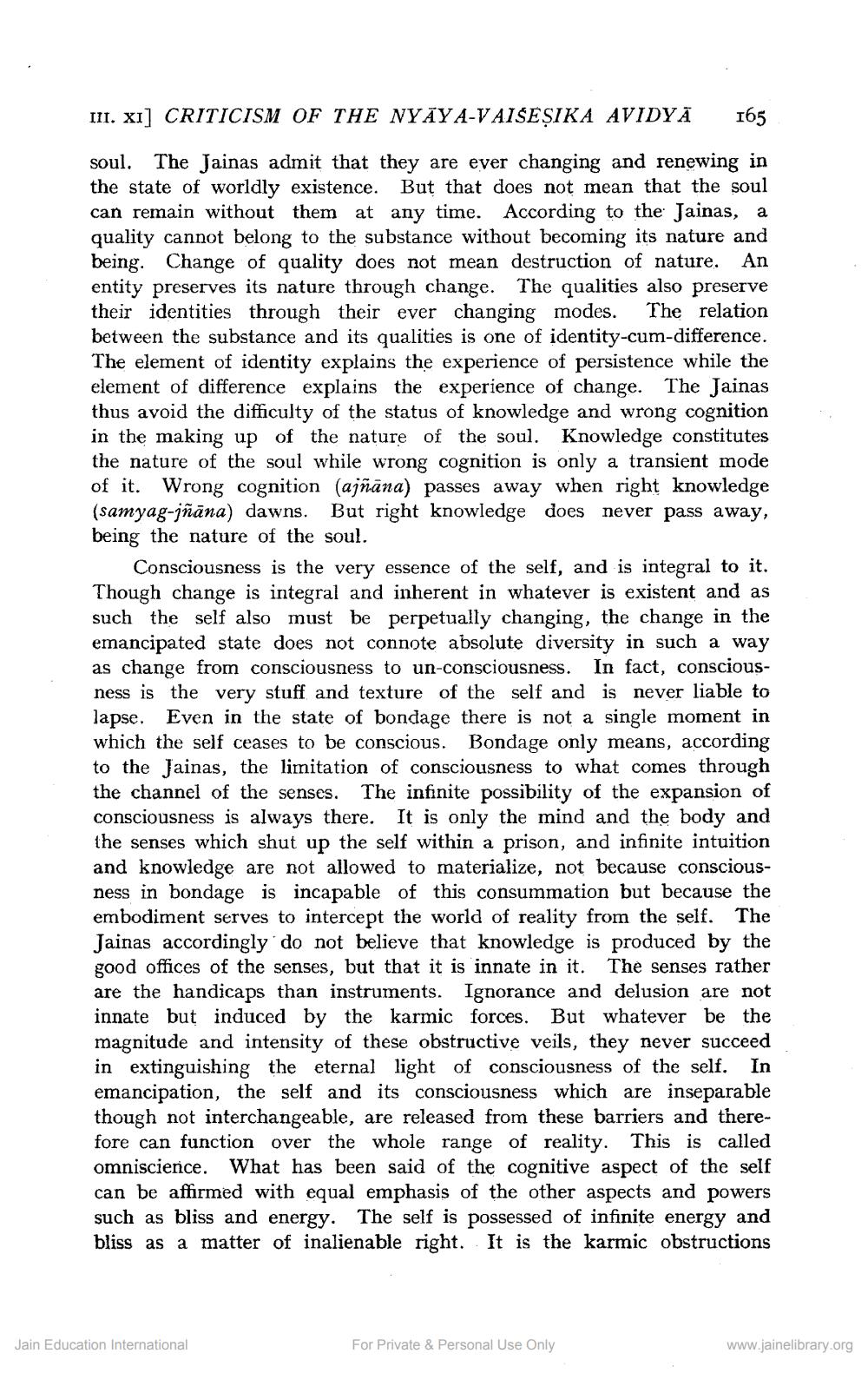________________
III. XI] CRITICISM OF THE NYAYA-VAISEṢIKA AVIDYĀ
165
soul. The Jainas admit that they are ever changing and renewing in the state of worldly existence. But that does not mean that the soul can remain without them at any time. According to the Jainas, a quality cannot belong to the substance without becoming its nature and being. Change of quality does not mean destruction of nature. An entity preserves its nature through change. The qualities also preserve their identities through their ever changing modes. The relation between the substance and its qualities is one of identity-cum-difference. The element of identity explains the experience of persistence while the element of difference explains the experience of change. The Jainas thus avoid the difficulty of the status of knowledge and wrong cognition in the making up of the nature of the soul. Knowledge constitutes the nature of the soul while wrong cognition is only a transient mode of it. Wrong cognition (ajñāna) passes away when right knowledge (samyag-jñāna) dawns. But right knowledge does never pass away, being the nature of the soul.
Consciousness is the very essence of the self, and is integral to it. Though change is integral and inherent in whatever is existent and as such the self also must be perpetually changing, the change in the emancipated state does not connote absolute diversity in such a way as change from consciousness to un-consciousness. In fact, consciousness is the very stuff and texture of the self and is never liable to lapse. Even in the state of bondage there is not a single moment in which the self ceases to be conscious. Bondage only means, according to the Jainas, the limitation of consciousness to what comes through the channel of the senses. The infinite possibility of the expansion of consciousness is always there. It is only the mind and the body and the senses which shut up the self within a prison, and infinite intuition and knowledge are not allowed to materialize, not because consciousness in bondage is incapable of this consummation but because the embodiment serves to intercept the world of reality from the self. The Jainas accordingly do not believe that knowledge is produced by the good offices of the senses, but that it is innate in it. The senses rather are the handicaps than instruments. Ignorance and delusion are not innate but induced by the karmic forces. But whatever be the magnitude and intensity of these obstructive veils, they never succeed in extinguishing the eternal light of consciousness of the self. In emancipation, the self and its consciousness which are inseparable though not interchangeable, are released from these barriers and therefore can function over the whole range of reality. This is called omniscience. What has been said of the cognitive aspect of the self can be affirmed with equal emphasis of the other aspects and powers such as bliss and energy. The self is possessed of infinite energy and bliss as a matter of inalienable right. It is the karmic obstructions
Jain Education International
For Private & Personal Use Only
www.jainelibrary.org




